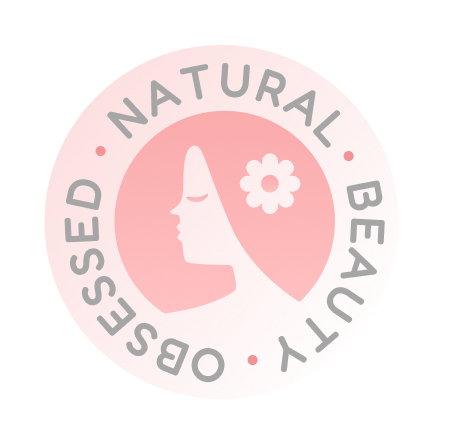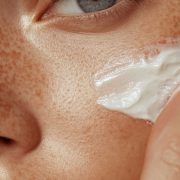Nourish Your Way to Plump, Bouncy Skin from Within
Posted on August 17, 2024 Written by: 100% PURE®

Have you heard about the “jello skin” trend? It’s all about achieving bouncy, hydrated, and super-smooth skin that looks like, well, jello!
To get this glow, start with a diet rich in collagen-boosting foods like bone broth, fish, and citrus fruits.
Hydrate like a pro—drink plenty of water and incorporate hydrating foods like cucumbers and watermelon. Adding hyaluronic acid supplements can also help your skin retain moisture. It’s not just about products; what you eat and drink plays a huge role in achieving that plump, youthful look.
Understanding Jello Skin
“Jello skin” is a catchy term that’s been trending in beauty circles, describing skin that’s bouncy, plump, and glowing—basically, skin that resembles the jiggly, firm texture of Jello. The phrase became popular through social media, where beauty enthusiasts shared their secrets to achieving this youthful, elastic look.
The science behind jello skin lies in its elasticity, largely thanks to collagen and elastin. These proteins are like the skin’s support system, giving it structure and the ability to snap back into place. Hydration plays a big role too—well-hydrated skin has more bounce and looks fuller and more radiant.
But getting and keeping jello skin isn’t just about good genes. Age, sun exposure, and environmental pollutants can break down collagen and elastin, making skin less resilient over time. Lifestyle choices like diet, sleep, and stress management are also key.

The Collagen Connection
Collagen is the most abundant protein in the body, essential for maintaining skin structure and elasticity. It plays a key role in by acting as the scaffolding that supports its overall integrity. There are several types of collagen, with Types I, II, and III being the most common, each serving different functions in the body.
As we age, collagen production naturally decreases, leading to thinner, less elastic skin, which contributes to wrinkles and sagging. To counter this, collagen can be sourced from dietary options like bone broth, chicken skin, and fish. Collagen supplements, available in various forms, are also popular for their potential skin benefits, although their effectiveness can vary depending on the individual.
Hydration for Plump Skin
Proper hydration is essential for maintaining plump, glowing skin. When the body is well-hydrated, , making the skin appear fuller and smoother. Conversely, dehydration can lead to dull, tight skin with more pronounced fine lines. Incorporating water-rich fruits and vegetables, such as watermelon, cucumber, and strawberries, into your diet can help keep your skin hydrated.
Electrolytes like sodium, potassium, and magnesium are also vital for maintaining the body’s hydration balance, which directly affects skin health. These minerals help regulate fluid retention and distribution, ensuring that skin cells remain hydrated and plump.
Nutrient-Rich Foods for Skin Elasticity
A is essential for maintaining skin elasticity and achieving a firm, youthful complexion.
Vitamin C: Found in citrus fruits, bell peppers, and strawberries, Vitamin C is crucial for collagen production, which strengthens the skin’s structure and helps maintain its elasticity.
Omega-3 Fatty Acids: Present in fatty fish, chia seeds, and walnuts, omega-3s support the skin’s moisture barrier, keeping it supple and hydrated.
Antioxidant-Rich Foods: Berries, spinach, and green tea are packed with antioxidants that protect against free radical damage, reducing the risk of premature aging.
Bone Broth: Rich in collagen, amino acids, and minerals, bone broth boosts skin elasticity and helps reduce the appearance of fine lines.
Chia Seeds and Nuts: These foods provide fiber and omega-3s, helping to reduce inflammation and maintain clear, glowing skin.
Lean Proteins: Chicken, eggs, and legumes supply essential amino acids needed for collagen and elastin production, promoting a smooth, resilient complexion.
Together, these foods work synergistically to protect, repair, and enhance the skin’s natural glow and firmness.
Dietary Habits for Jello Skin
Achieving “jello skin”—skin that is plump, bouncy, and glowing—requires a balanced diet rich in proteins, healthy fats, and complex carbohydrates. A typical day might include oatmeal with berries, grilled salmon with quinoa salad, and lean chicken with steamed vegetables. Regular meal timing helps stabilize blood sugar, preventing collagen breakdown, while intermittent fasting may enhance skin repair.
Consuming collagen-boosting foods like bone broth or vitamin C-rich fruits in the morning can optimize absorption. Limiting sugar, which damages collagen, and avoiding processed foods that cause inflammation, are also key to maintaining youthful, elastic skin.

100% PURE Products to Complement Your Jello Skin Diet
Achieving jello skin—plump, bouncy, and glowing—goes beyond diet alone. Incorporating specific products into your skincare routine can amplify the benefits of a nutrient-rich diet. offers a range of products designed to complement your jello skin journey.
The provides a powerful nutrient boost for nighttime skin repair, working synergistically with your healthy diet.
The supports neck skin elasticity, which is ideal for use alongside dietary changes. For a plant-based alternative to retinol, the firms the skin, complementing dietary collagen intake.
The is packed with topical antioxidants that enhance the effects of a diet rich in antioxidants, while the delivers intense hydration to amplify the plumpness achieved through proper nutrition.
can significantly enhance your skin’s elasticity and overall glow.
Lifestyle Factors Supporting Jello Skin
Your lifestyle plays a big role in maintaining jello skin. Regular exercise improves circulation, which enhances skin health and elasticity. Incorporating both cardio and strength training into your routine can boost skin’s natural glow. Post-workout nutrition, rich in protein and antioxidants, is essential for skin recovery and maintaining elasticity.
Managing stress is equally important, as chronic stress can lead to skin issues like dullness and premature aging. Establishing a consistent sleep routine ensures your skin gets the time it needs to repair and rejuvenate, contributing to a plump, youthful appearance.
Tracking Your Jello Skin Progress
To gauge the effectiveness of your jello skin regimen, look for visual cues like improved elasticity, increased skin bounce, and enhanced plumpness. Noticeable improvements in overall skin glow and texture are also positive signs. Non-visual indicators include better hydration levels and the skin’s enhanced ability to retain moisture. It’s important to be patient and consistent, and set realistic expectations as results may take time. Long-term benefits of a skin-healthy diet include sustained elasticity and a radiant complexion.
Achieving jello skin requires a holistic approach combining a diet rich in collagen-boosting foods, antioxidants, and healthy fats. By nourishing your skin from within and integrating these dietary strategies with , you can enhance skin elasticity, bounce, and glow. Embrace this comprehensive approach for sustainable, radiant results, and enjoy the long-term benefits of vibrant, youthful skin.
Frequently Asked Questions
How long does it take to see results from a jello skin diet?
Results from a jello skin diet can vary based on individual factors such as age, skin type, and overall health. Generally, you may start to notice improvements in skin elasticity and glow within 4-6 weeks of consistently following a nutrient-rich diet. Full benefits often take several months of commitment to become evident.
Can vegetarians and vegans achieve jello skin through diet?
Yes, vegetarians and vegans can achieve jello skin through diet by focusing on plant-based sources of nutrients that support skin health. Incorporate vitamin C-rich foods, omega-3 sources like flaxseeds, and protein-rich options such as legumes and nuts. Collagen supplements derived from plants, like those containing amino acids and vitamin C, can also support skin health.
Are there any risks associated with consuming too much collagen?
Consuming excessive collagen is generally considered safe, but very high doses might lead to digestive discomfort or an imbalance in nutrient intake. It’s best to follow recommended dosages and consult with a healthcare provider if you have concerns or underlying health conditions.
How does alcohol consumption affect jello skin?
Alcohol can negatively impact skin health by depleting the body of essential nutrients, leading to dehydration and reduced skin elasticity. It can also cause inflammation and exacerbate skin issues. Limiting alcohol intake can help maintain the skin’s plumpness and overall health.
Can jello skin be achieved through diet alone, or are skincare products necessary?
While a balanced diet is a must for achieving jello skin, combining it with targeted skin care products can enhance results. Nutrient-rich foods support skin health from within, while products like serums and creams can provide additional benefits such as hydration and collagen support. A holistic approach combining both is most effective.




